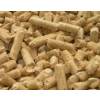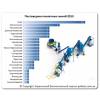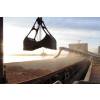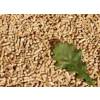Why the protective duties for scrap metal don’t harm the EU: the position of metallurgists
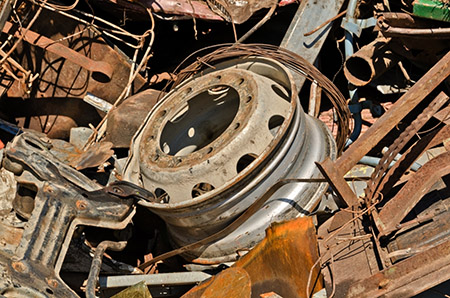
05.10.2017 15:51
The appeared scandal arround the extension of the protective tariffs for the import of scrap metal continues. The bill passed by the Verkhovna Rada, which aroused criticism of the EU, was supported both by the Ministry of Economic Development and by the Prime Minister Vladimir Groysman. At the same time, the Ministry of Economic Development and Trade asserts that the duty will not apply to exports to the EU. Last news - July 10 Petro Poroshenko vetoed this bill. However, the president made only one remark, suggesting that the protective interest rate be reduced from 2 years to a year; other standards of the bill remain unchanged.
Recently, the EU mission in Ukraine has burst out loud criticism of the law on the extension of the export duty on scrap metal http://metalscraps.co.uk . Those involved in this normative act were immediately declared enemies of reforms in Ukraine, and threats were again sent to our country about the termination of various forms of support.
Are there any grounds for such emotional and uncompromising statements from our strategic partner? Let's have a look at the facts.
Scrap metal is not being exported to the European Union
If in 2014, there were exported to the EU countries 2.6 thousand tons, then in 2015 - 24 thousand tons, while in 2016 there was no export at all. At the market estimated in millions of tons, these volumes do not exceed the statistical error.
Thus, the EU has no direct economic interest in importing Ukrainian scrap metal. And never had.
Does the metal from Ukraine compete with producers from the EU? Again, it doesn’t.
For the period of the export duty validity on scrap, the supply of metal products from Ukraine to the EU declined by 14%. The steel market of the EU countries is very stable and rapid growth there is not possible.
Scrap metal export is focused on the Middle East and Asia
Therefore, the main efforts of Ukrainian metallurgists are directed to more promising markets, such as the Middle East and Asia.
At the same time, the EU market is protected from steel products from Ukraine by import duties (for example, on steel pipes), which no one hurries to cancel. And this fact in the eyes of our European partners is perfectly combined with the declarations of free trade. And the limitation of export of scrap from Ukraine for some reason does not combine.
Do Ukrainian metallurgists compete with European metallurgy in other markets? Very rarely.
Traditional competitors of Ukrainian steel producers are Russian, Chinese and Indian companies, not European ones. That is, there is no conflict of interest seen.
At the same time, limiting the export of scrap from Ukraine is beneficial to European metallurgists. And that's why - easily accessible scrap in Ukraine ends.
Steel Producers Activities
In 2016, Ukrainian steel producers increased imports of scrap 8 times and imports of hot briquetted iron (a more expensive alternative to scrap metal) by 4.7 times. The main source of imports is Russia. If Russia closes its scrap market http://metalscraps.co.uk/news-metal-scrap-market-in-the-united-kingdom-2.html for political reasons, the nearest major market for steel scrap is the EU.
The demand for European scrap in Ukraine will lead to an increase in the price of this raw material in the European Union, which will harm their metallurgists.
Thus, the European metallurgical industry rather will get benefits, than suffer as a result of the extension of the duty for export of scrap from Ukraine.
Metal Scrap Export from Ukraine
We see that the EU has no economic reasons to oppose the export of scrap from Ukraine. Benefits for European business behind this position of European officials are not worth it.
Now let's see for whom in Ukraine such a position of Europeans is advantageous. Obviously, not for metallurgists, because scrap metal is a key raw material, without which enterprises stop.
Against the duty on the scrap metal export are the collectors and exporters of scrap. Namely their position is consonant with the opinion of EU representatives in Ukraine.
It's no secret that scrap collecting is one of the most shady and criminal businesses in Ukraine. About 70% of the bottom level scrap collection is in shadow, the annual turnover of this market is estimated from half a billion to a billion dollars in cash per year.
Scrap Export as Business
In terms of transparency, scrap collection is on a par with amber mining and smuggling of cigarettes. A scrap export is a business, in which a significant part of its margin is formed as a result of non-payment of taxes in Ukraine.
Having opposed the extension of the export duty on scrap metal, EU officials have advocated one of the most criminal businesses in Ukraine - the collecting and export of scrap metal.
We have heard many times from European officials that they are against limiting the export of scrap, but have never heard from them that this business should firstly be decriminalized and taken out from the shadow, and then only it should claim its rights. By the way, metallurgists have recently come up with an initiative to adopt a number of legislative changes to take out the scrap business from the shadow.
What happens? The EU has no economic interest in Ukrainian scrap: there is no export to the EU, it is in the interests of European companies to keep scrap in Ukraine as long as possible.
The coincidence of values is even more absurd. Obviously, it is not in the logic of the EU to support Ukrainian criminals and business in cashing.
Therefore, the EU position on exporting scrap is more like an emotional reminder of the undesirability of trade restrictions as a phenomenon (I repeat, they are very well used in Ukraine for Ukraine), rather than a position based on the real economic interests of European companies.
Scrap Metal Export Duty
At the same time Ukraine, which conducts military actions, has economic reasons for extending the export duty for scrap metal are very significant.
Firstly, the defense. Steel for the military industry is produced in Ukraine from this raw material.
Secondly, filling the budget. For Ukraine it is at least four times more profitable to process the raw materials within the country, rather than to export it. The foreign currency earnings are another important argument. Production of the MMC is almost a quarter of Ukrainian commodity exports.
The rate of hryvnia depends largely on how metallurgists will work.
Next, the stability around the ATO zone. Enterprises of the mining and metallurgical complex are located in areas bordering the zone of military operations. The revenues of 250,000 workers of MMC, and with family members - about 1 million Ukrainians, depend on the stable loading of metallurgical enterprises.
And, finally, the WTO rules allow Ukraine to argumently introduce temporary trade restrictions in case of a threat to the national security.
All these arguments were voiced by metallurgists at the meeting with the EU embassy in Ukraine. As well as the fact that the situation in Ukraine has changed significantly since the development of the Association Agreement and the violation of the Budapest Memorandum by the guarantor countries of Ukraine's security
Другие новости


